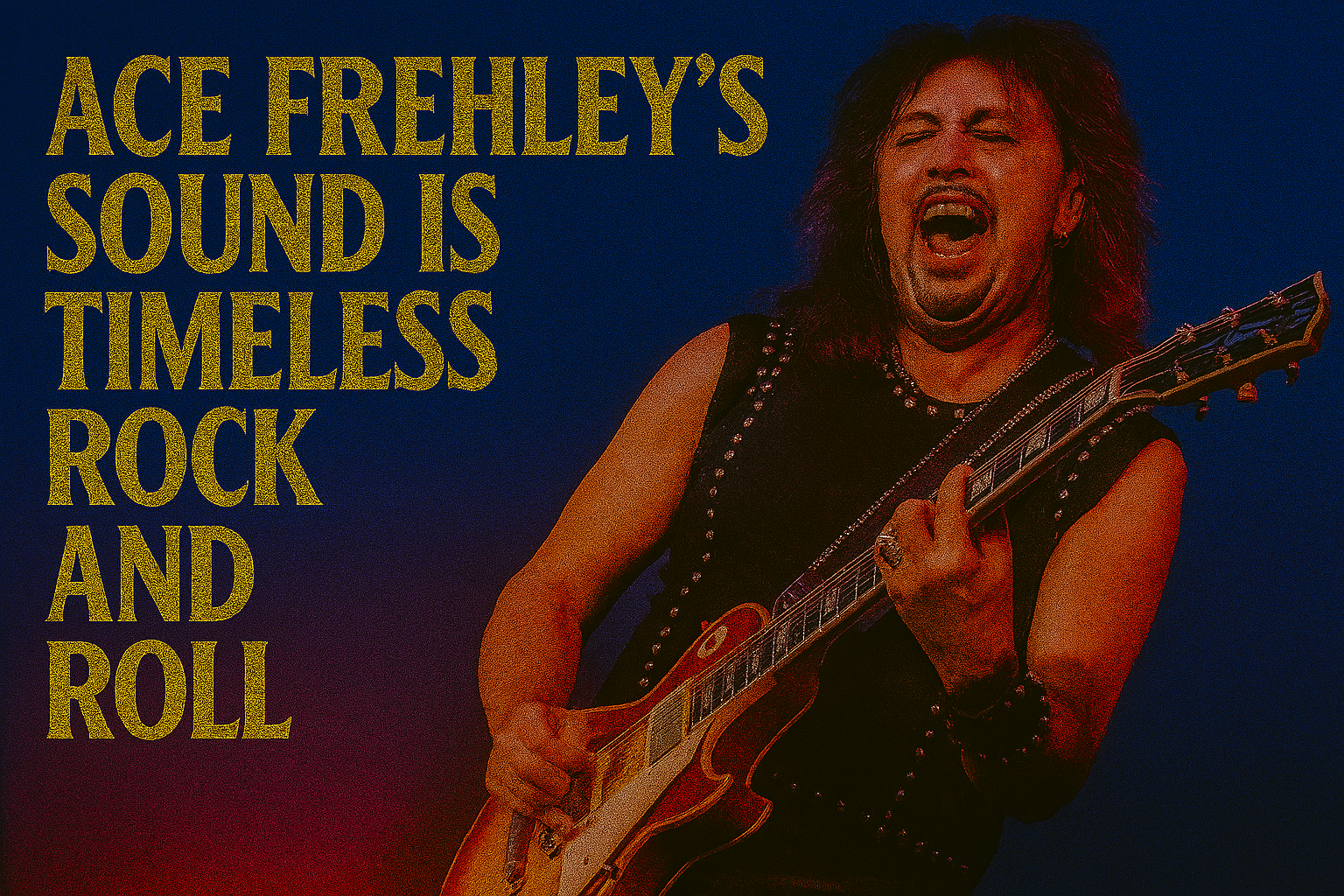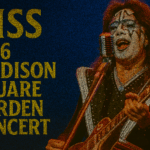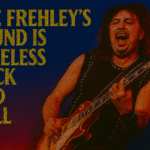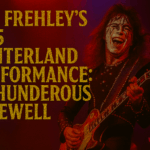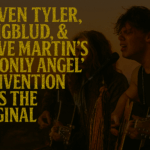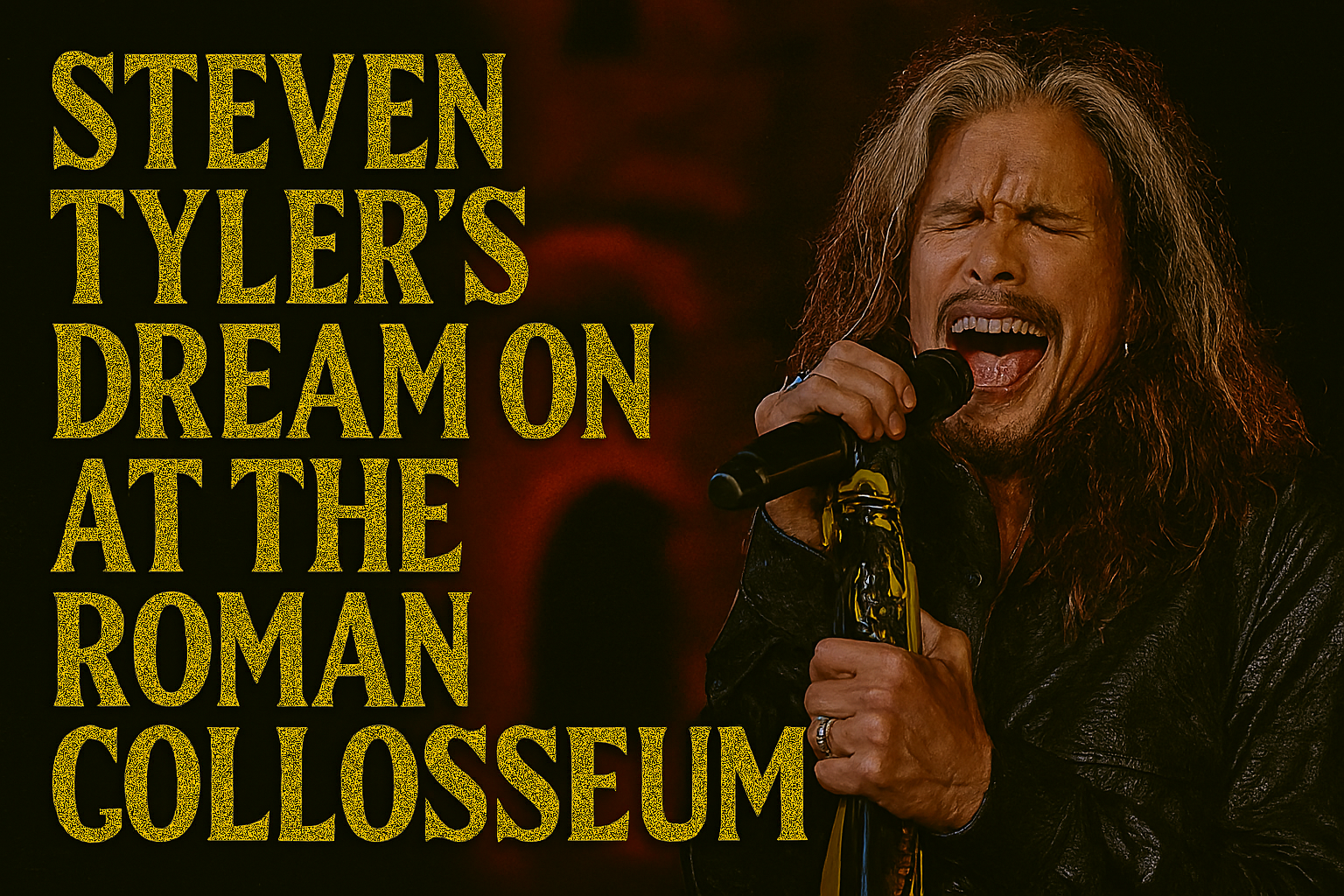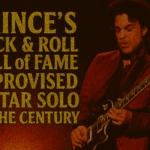Ace Frehley wasn’t just the lead guitarist of KISS—he was its sonic heartbeat. From the moment he strapped on his Les Paul and stepped into the spotlight, he brought a sound that was raw, electrifying, and unmistakably his own. His riffs weren’t just catchy—they were elemental. They pulsed with danger, swagger, and soul. And unlike many of his peers, Ace’s style never felt tied to a specific era. It was classic, but never dated. Loud, but never overproduced. It was rock and roll in its purest form.
What made Ace’s sound so enduring was its authenticity. He didn’t chase trends or bend to commercial pressures. His solos were gritty, melodic, and full of character. Whether it was the thunderous intro to “Shock Me,” the snarling riff of “Parasite,” or the cosmic flair of “Rocket Ride,” Ace played with conviction. His tone—thick, distorted, and unapologetically analog—became a blueprint for countless guitarists who followed. And yet, no one ever quite replicated it. Because Ace wasn’t just playing notes—he was channeling attitude.
Even outside of KISS, his solo work carried that same timeless energy. Albums like Frehley’s Comet and Anomaly proved that his sound wasn’t confined to the ’70s. It evolved, but never lost its edge. His guitar spoke with the same fire, whether he was shredding in stadiums or recording in studios decades later. That consistency is rare in rock, where many artists fade or reinvent themselves beyond recognition. Ace stayed true—and that’s why his music still hits hard.
His influence stretches far beyond his discography. Ace inspired generations of guitarists, from punk rebels to metal icons. Bands like Nirvana, The Replacements, and even Pearl Jam have cited KISS—and specifically Ace—as a formative influence. His playing wasn’t just technical—it was emotional. It made kids want to pick up guitars and make noise. It made rock feel accessible, rebellious, and alive.
Part of Ace’s timelessness also comes from his persona. The “Spaceman” wasn’t just a gimmick—it was a symbol. A Bronx kid who launched himself into rock immortality, Ace embodied the dream of escape, of transformation through music. He didn’t just play guitar—he made it look like freedom. And that image, paired with his sound, created a legacy that still resonates.
Even in his final years, Ace’s performances retained their fire. Whether he was revisiting classics or debuting new material, his guitar never lost its bite. Fans marveled at how his tone remained consistent, how his solos still soared. It wasn’t nostalgia—it was proof that some sounds don’t age. They just keep echoing.
Whether revisiting KISS classics or unveiling new solo material, Ace’s performances carried the same raw energy and unmistakable tone that defined his early career. His Les Paul still roared with thick sustain and sharp attack, and his solos soared with melodic grit. Fans were struck by how little his sound had changed over the decades—not out of nostalgia, but because it never needed to. His tone wasn’t a relic; it was a living force.
Ace’s consistency became a hallmark of his legacy. While many artists evolve or soften with age, he stayed true to the fire that made him iconic. His riffs still punched, his phrasing still danced, and his stage presence still radiated rebellious charm. Every performance felt like a continuation of the voltage he first unleashed in the ’70s.
Now that Ace is gone, his music feels even more vital. It’s not just a catalog—it’s a testament. A reminder that rock and roll, at its best, is about truth, grit, and soul. And Ace Frehley delivered all three in every note he played.
